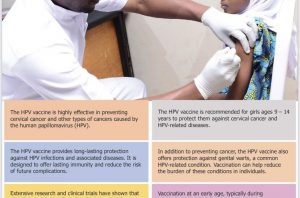
Unveiling the Harsh Reality: How Delayed Detection and Poverty Ignite the Grim Cancer Scenario in Nigeria
In the wake of my recent Guardian feature discussing the alarmingly high cancer mortality and morbidity rates in Nigeria, it is imperative that we delve into the root causes, implications, and potential solutions for this grave issue. This post aims to shed further light on the grave consequences of late detection and poverty in fueling the devastating impact of cancer in Nigeria.
The Scourge of Late Detection
One of the gravest challenges faced by Nigeria’s healthcare system is the delay in cancer detection. The ramifications of this delay cannot be overstated. Late detection often results in advanced stages of cancer, reducing the effectiveness of treatment options and worsening the prognosis for patients. Regrettably, a multitude of factors contribute to the delayed detection, including limited access to quality healthcare, inadequate education, and cultural perceptions.
When we consider that many individuals in rural areas lack access to proper screening facilities and are often uninformed about the urgency of early detection, we begin to unravel an intricate web of neglect. It is essential for the Nigerian government to take decisive action, prioritizing the improvement of healthcare infrastructure and ensuring proper education regarding the importance of regular screenings.
The Crushing Impact of Poverty
Poverty, undoubtedly, plays a significant role in amplifying the cancer crisis in Nigeria. With limited financial resources, many individuals are forced to forgo essential screenings or postpone necessary treatment, leading to dire consequences. Financial constraints hinder individuals from accessing timely medical interventions, leading to increased mortality rates.
To address this disparity, there is an urgent need for increased investment in publicly funded healthcare initiatives and financial assistance schemes for cancer patients. This must be accompanied by targeted campaigns to raise awareness among the population, emphasizing the significance of early detection and timely treatment.
Sociocultural Factors and Stigma
In Nigeria, cultural beliefs and stigmatization surrounding cancer continue to negatively impact both detection rates and mental well-being. Many individuals remain hesitant to seek medical help due to the prevailing fear of being associated with the disease. This stigma exacerbates the already dire circumstances, preventing individuals from seeking treatment during the early stages when intervention is most effective.
Efforts must be made to enlighten the Nigerian population, dispelling myths about cancer and promoting the importance of destigmatization. Raising awareness through educational campaigns, community involvement, and testimonials from cancer survivors can contribute to altering societal perceptions and reducing the fear surrounding the disease.
Long-term Solutions: Collaboration and Empowerment
Addressing the crisis of cancer in Nigeria necessitates a multifaceted approach. Collaboration between government bodies, healthcare providers, civil society, and international partners is crucial. In particular, collaboration with non-profit organizations specializing in cancer research and treatment can greatly enhance Nigeria’s capacity to combat the disease.
Moreover, empowering local healthcare professionals and investing in their training will play an instrumental role in improving cancer care and awareness across the nation. By equipping Nigerian medical personnel with the necessary knowledge, technologies, and resources, the country can build a sustainable foundation for managing and preventing cancer cases effectively.
Conclusion
The Guardian’s coverage of my fight in Nigeria’s grim cancer reality exposes the critical issues of late detection and poverty that contribute to high mortality and morbidity rates. Recognizing the severity of the situation, it is incumbent upon every stakeholder, from government bodies to individuals, to take decisive action.
In the face of this crisis, raising awareness, improving access to quality healthcare, combating poverty, and destigmatizing cancer are key components for progress. By adopting a multi-pronged approach and a shared commitment, Nigeria can significantly reduce the burden of cancer and pave the way for a healthier future.
Read the Guardian article here




